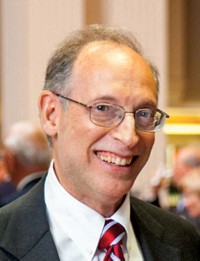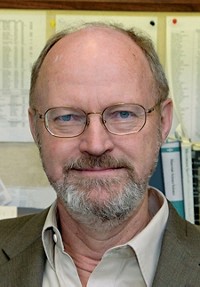Advertisement
Grab your lab coat. Let's get started
Welcome!
Welcome!
Create an account below to get 6 C&EN articles per month, receive newsletters and more - all free.
It seems this is your first time logging in online. Please enter the following information to continue.
As an ACS member you automatically get access to this site. All we need is few more details to create your reading experience.
Not you? Sign in with a different account.
Not you? Sign in with a different account.
ERROR 1
ERROR 1
ERROR 2
ERROR 2
ERROR 2
ERROR 2
ERROR 2
Password and Confirm password must match.
If you have an ACS member number, please enter it here so we can link this account to your membership. (optional)
ERROR 2
ACS values your privacy. By submitting your information, you are gaining access to C&EN and subscribing to our weekly newsletter. We use the information you provide to make your reading experience better, and we will never sell your data to third party members.
People
100th Nichols Medal Presented To Barry Sharpless
April 24, 2006
| A version of this story appeared in
Volume 84, Issue 17

At ceremonies held on March 10, the ACS New York Section presented the 2006 William H. Nichols Medal for distinguished research in chemistry to K. Barry Sharpless, W. M. Keck Professor of Chemistry at the Scripps Research Institute. This was the 100th presentation of the Nichols Medal. Sharpless accepted the medal along with a cash award of $5,000 at a banquet, which followed a distinguished technical symposium.
The symposium featured four speakers: Valery V. Fokin, Scripps Research Institute; Jan H. van Maarseveen, University of Amsterdam; Craig J. Hawker, University of California, Santa Barbara; and the medalist. Among the notables at the dinner were previous Nichols Medal winners Gilbert Stork, Koji Nakanishi, and Harold A. Sheraga.
The award citation honors Sharpless "for click chemistry, a new strategy for chemical discovery." Click chemistry is a set of powerful, reliable, and selective reactions for the rapid synthesis of new compounds via heteroatom links. It is now integral to all research within the Sharpless lab, including numerous collaborations with biologists both within Scripps Research Institute and beyond. Earlier in his career, Sharpless discovered general methods for catalytic asymmetric epoxidation, dihydroxylation, and aminohydroxylation of alkenes; this work was honored with the Nobel Prize in Chemistry in 2001.
William H. Nichols, a charter member of ACS and its president in 1918 and 1919, was a pioneer in the development of the chemical industry in the U.S. and an early champion of the importance of chemistry in the future growth of the nation. He maintained a deep commitment to research and development and to the importance of supporting science education and students of chemistry. In 1902, he expressed his conviction by establishing an annual award, the first in its field, of a gold medal to a chemical scientist for original research.
The William H. Nichols Medal was first awarded in 1903. It has been perpetuated by the generosity of Nichols, his family, and the Nichols Foundation. The award ceremony itself has evolved into the Distinguished Symposium and the Medal Award Dinner during which scientists can interact with their colleagues and with chemistry students. The students, in keeping with Nichols' belief in the inspirational value of the award, are invited to meet with the medalist.




Join the conversation
Contact the reporter
Submit a Letter to the Editor for publication
Engage with us on Twitter